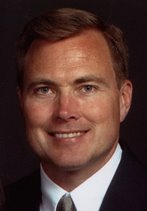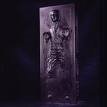 Here is something that I read today that, I think, applies to what Erich wrote about hearing the Voice of the Shepherd and also a post over at Cyberstones.
Here is something that I read today that, I think, applies to what Erich wrote about hearing the Voice of the Shepherd and also a post over at Cyberstones.Interesting enough, I also think that it relates to what I have been writing about the Light of Christ and what I am calling 'biblical openness'; notice how Chemnitz says that everyone should know what questions will be asked during the biannual examinations of pastors, and what is most interesting is that he says that the laity should also know what is included in these exams of pastors, "according to which also the hearers might judge whether their pastors follow the true voice of Christ, the only Chief Shepherd, or if they speak with the voice of a stranger, Jn. 10:3-5."
Really great stuff:
And since God instituted the ministry for this reason and used it to this end, that the Body of Christ, that is, His church might be built, and ever grow, unto the identifying of itself, Eph 4:16, they that are in the ministry must, with all concern, diligence, and faithfulness, be God’s colaborers, plant, and water, 1 Co 3:6-9, that the Word of God might dwell among us richly in all wisdom, CL 3:16, and all manner or tares of false, erroneous doctrine be rooted up and kept away from these churches by the grace of God, Mt 15:1-13; Acts 20:28-31.How this sounds long ago in a galaxy far, far away! How truly blessed are those Christians who have pastors that would heartily welcome such examinations!
For that reason and in view of this it is decreed in the Christian church order of our illustrious prince and ruler, Lord Julius, duke of Brunswick and Lüneburg, that the examinations be held not only when someone is to be accepted and received into the church ministry, but that the superintendents twice a year examine the pastors assigned to their supervision, so that it might at one and the same time be an indoctrination and instruction regarding the basis and true meaning of the pure doctrine, and how less-learned pastors might arrange their studies, guard against false doctrine, and set the doctrine before their hearer in plain and simple terms, so that through such examinations the whole church, both preachers and hearers, might be edified under divine blessing with great profit and benefit.
But in order that equality might be preserved in the examinations and the less-learned be able the better to prepare themselves for them, it was resolved in the church consistory, with the gracious previous form of examination --- like that in the consistory --- used with those who are to be ordained and received into the church ministry be published in written for, so that the superintendents might be able to follow it in the annual visitations.
...also it [this little book] is written in German so that the laity might read and know what is discussed in examinations and what is the model in the chief heads of salutary doctrine, according to which also the hearers might judge whether their pastors follow the true voice of Christ, the only Chief Shepherd, or if they speak with the voice of a stranger, Jn. 10:3-5.
-Martin Chemnitz in Ministry, Word, and Sacramanets: An Enchiridian. Trans. Luther Poellot. St. Louis: CPH, 1981. Pages 16-17.
Blessings.










2 comments:
In the 16th century, this little volume was published with another one in a single binding. The other was Urbanus Rhegius' *Formulae quaedem caute* - translated for us into English as *Preaching the Reformation* by Scott Hendrix. It showed the pastors how to speak with caution on a wide range of topics - from the Mass to the Saints to Repentance to Good Works. It was the primarily homiletical textbook of the era. It would be great for our pastors and laity to not only be familiar with Chemnitz' little handbook, but also with Rhegius'.
From the intro:
"For years now, with great distress, I have seen in many parts of Germany how often laity have been seriously offended by that confused, inept, and imprudent way of speaking when certain thoughtless know-it-alls, with an inflated estimation of their own knowledge, take no notice of what they say, how they say it, or to whom they are speaking. I will give a few examples of these offensive formulations that corrupt the minds of the laity and drive many away from the Gospel..."
Thanks, Pastor!
Post a Comment